Web Exclusive
Electoral Irregularities under Chavismo: A Tally
This is a draft document and part of an ongoing project on electoral irregularities in Venezuela. Please help improve this document by reporting any errors and omissions to jcorrales@amherst.edu. Just days ahead of the first post-Chávez election since 1998, Venezuela’s opposition candidate, Henrique Capriles, has made electoral irregularities a major issue in his campaign. Claiming … Read more
Web Exclusive
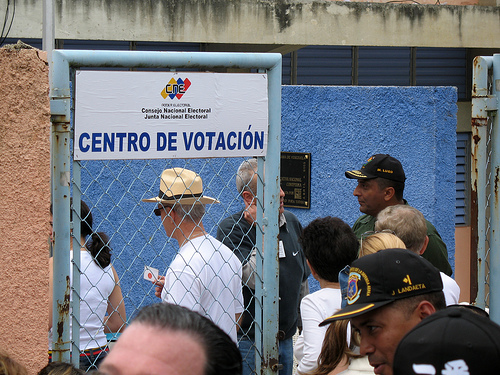
Venezuela: Timidity and Sub-Standard Election Observation
Last week, the Human Rights Foundation called on the Organization of American States (OAS) Secretary General, José Miguel Insulza, to urge the National Electoral Council (CNE) of Venezuela to invite an OAS electoral observation mission to monitor the upcoming April 14 presidential elections. An OAS mission—along the lines of what it used to field in … Read more
Web Exclusive
AQ Slideshows: Natural Resource Extraction in Latin America
Award-winning photographer Nicolas Villaume accompanied Americas Quarterly to Chile, Colombia and Peru in 2012 to study natural resource extraction and its effect on social inclusion. Photographed during the AQ team’s site visits to mines in each country and meetings with stakeholders at the extraction sites and nearby communities, Villaume’s photos bring this research to life … Read more
Web Exclusive
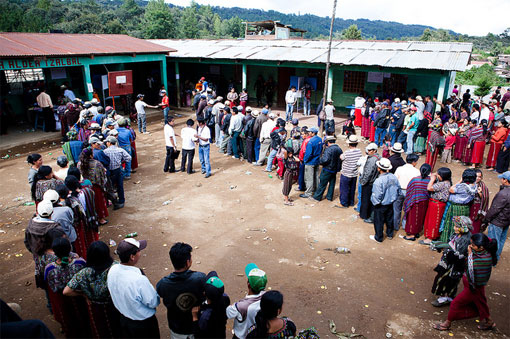
Mining Conflict and Indigenous Consultation in Guatemala
A handful of Mayan-Q’eqchi’ men and women met with lawyers late last year in Ontario to review the details of three lawsuits filed in local courts against the Canadian mining company HudBay Minerals. They had traveled to Canada to pursue legal recourse for their claim that security personnel at the company’s Fenix Mining Project in … Read more
Web Exclusive
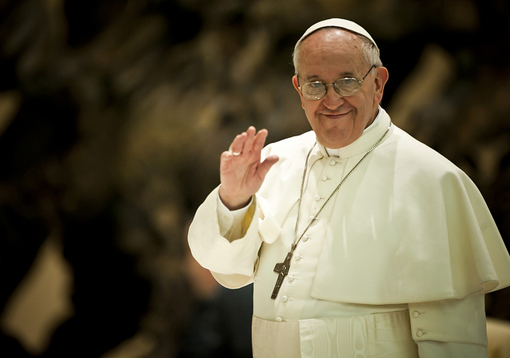
The New Pope and Gay Rights
While naysayers joke that the Cardinals may as well have elected another Italian Pope in choosing a porteño, the move to elect Jorge Mario Bergoglio of Argentina, now Pope Francis, is of undeniable significance for the global south. This is particularly true for Latin Americans, who—while accounting for 40 percent of all Catholics—often complain of … Read more
Web Exclusive
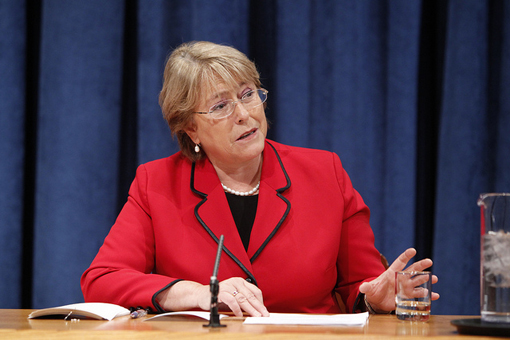
Michelle Bachelet’s Next Move
Michelle Bachelet surprised no one last week when she announced she was leaving her post as head of UN Women. While she did not say so explicitly, it is widely expected that Bachelet will run for president again. Though her victory in Chile’s November presidential election is far from a sure thing, public opinion polls … Read more
Web Exclusive
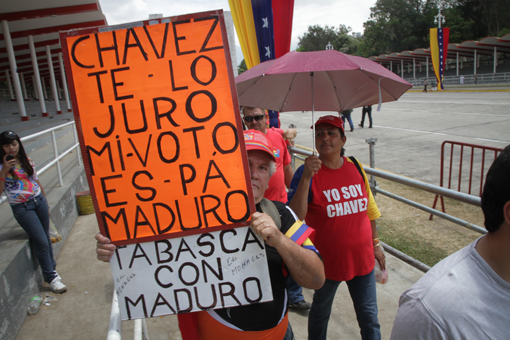
Did Chávez Help the Poor?
In a recent opinion piece, Venezuelan-American author Eva Golinger proclaimed the late Hugo Chávez was “a maker of dreams.” Chávez, she says, dreamt of eradicating poverty, and made those dreams come true. Much of what has been written—including by people critical of his legacy—repeats the same conclusion: Chávez improved the lives of the poor. Sadly, … Read more
Web Exclusive
AQ Slideshow: Venezuelans Wait Hours to View Chávez
Click here to view an expanded version of the slideshow. Venezuelan President Hugo Chávez’ body is being moved today from the Military Academy of Caracas to the city’s military museum, marking the end of a nine-day open casket service that has drawn thousands of the late president’s followers to the capital city. The lines of … Read more
Web Exclusive

Pope Francis, an Argentine, to Guide the Catholic Church
The new Pope is Latin American—an Argentine Jesuit, to be exact. The decision took the world by surprise and left even the new Pope himself, who had left most of his things at the Residence for Priests in Rome, dumbfounded. Predictions mostly pointed at figures from Brazil, Ghana, the United States, European Countries and, yes, … Read more
Web Exclusive
AQ Q&A: José Miguel Vivanco and Gustavo Mohme on IACHR Reform
José Miguel Vivanco, Americas Director of Human Rights Watch, and Gustavo Mohme, director of Peruvian newspaper La República, speak with Americas Quarterly about the risks of the proposed reform to the Inter-American Commission of Human Rights (IACHR) of the Organization of American States. They explore the potential consequences and describe why it is important for … Read more
Web Exclusive
AQ Slideshow: Venezuelans Pay Their Respects to Hugo Chávez
Click here to view an expanded version of the slideshow. Throughout the day on Wednesday, enormous crowds took to the streets of Caracas to join the president’s procession from the hospital in which he died to the military academy. The impressive procession traversed eight kilometers of the capital city and lasted seven hours, flooding major … Read more
Web Exclusive
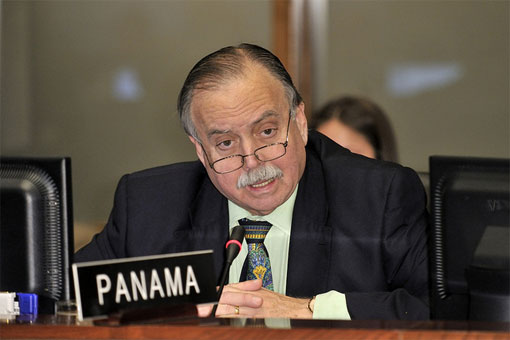
THE IACHR Loses An Advocate
Last week, Ambassador Guillermo Cochez permanently left his post as Panama’s permanent representative to the Organization of American States (OAS) after Panamanian President Ricardo Martinelli ordered him to step down on January 17 for criticizing the delayed inauguration of Venezuelan President Hugo Chávez. His voice will be missed in the ongoing debate for change at … Read more
Web Exclusive
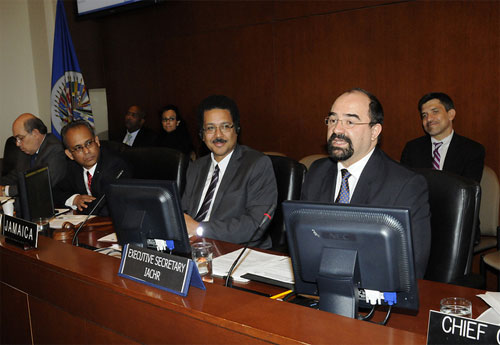
The Future of the Inter-American Human Rights System
Neither uncertainty about the continuity of chavismo in Venezuela nor the campaign of newly re-elected Ecuadorian President Rafael Correa have distracted the ALBA (Bolivarian Alliance for the Peoples of Our America) countries in their crusade against the Inter-American Commission on Human Rights (IACHR). Just over a year ago, they launched a campaign to weaken the … Read more
Web Exclusive
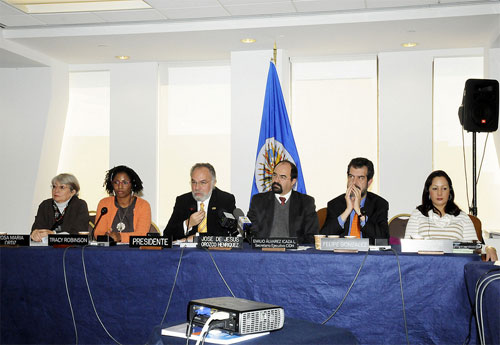
Human Rights Under Siege in the Americas
For more than 50 years, the human rights system of the Organization of American States (OAS) has served as the last line of defense for citizens facing abusive treatment throughout the hemisphere. It has mediated directly in cases of imminent risk and issued thorough reports that shine light on systemic human rights abuses. Perceived as … Read more
Web Exclusive
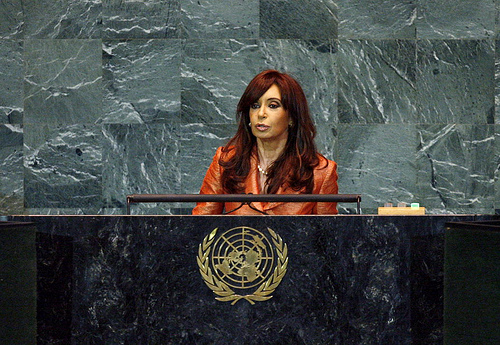
Argentina and the IMF
Last Friday, the International Monetary Fund (IMF) Board of Governors voted to censure Argentina for failing to revise its widely-disputed inflation data. Censure by the IMF is historic for a G20 member—having never occurred previously—and will likely harm Argentina’s already-limited access to foreign capital. If Argentina does not provide new inflation data and implement “remedial … Read more

